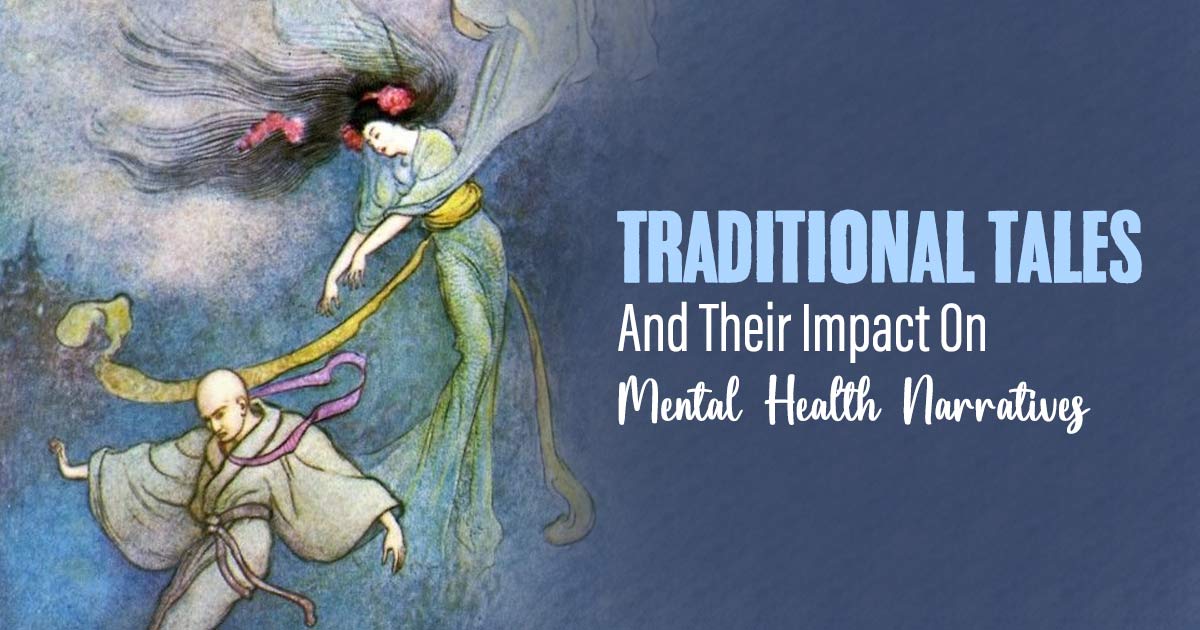Folklores and mental illness might seem like two unrelated topics, but a closer look at it makes it clear that folklores have been very instrumental in shaping the framework for mental health in various cultures. Folklores refer to myths, legends and traditional stories passed down through generations, which often reflect on beliefs, values and fears of society. These stories can influence how mental health is understood, treated and perceived within a community.
One way through which folklores lay the foundation for mental illness is by maintaining stigma and misconceptions. A good number of folklores feature mentally challenged characters who are often depicted as dangerous, unpredictable or possessed of supernatural forces. These portrayals further stigmatize mental illness—leading to discrimination and social exclusion against individuals grappling with mental health challenges.
In some societies, folklores associate mental disorders with curses, demonic possession or divine punishment, thereby strengthening stereotypes and misconceptions about mental illnesses. Consequently, persons having psychological problems may be isolated from support systems and this approach can perpetuate the cycle of suffering.
Also, the relationship between folklores and mental illness shape cultural understanding of mental health by offering explanations and interpretations about psychological phenomena. In many traditional societies, folklores have been used as a means of explaining mind complexities and human behavior reactions to it.
For instance, symptoms of psychopathology often appearing in the form of hallucinations, delusions, or mood disturbances are frequently connected with supernatural or mystical causes in traditional tales.
In this regard, these narratives provide cultural blueprints for understanding and interpreting madness from different angles other than biologically or rationally. These stories can change how communities perceive mentally ill patients, thus making them more sympathetic.
Furthermore, folklores impact treatment practices related to mental illness when it comes to shaping traditional healing methods (including therapeutic interventions). Many folktales have characters who seek remedies for mental health issues through rituals, herbal medicine or spiritual practices.
Such stories support the development of traditional healing systems in different cultures that are practiced even alongside modern psychiatric interventions. For example, healers in some indigenous communities may incorporate traditional folklore techniques such as storytelling, music, and dance in treatment for mental illness.
In addition, folklores have played a key role in preserving and transmitting cultural beliefs and values related to mental illness. Many folktales contain moral lessons and ethical principles that address issues of mental health and well-being. Such narratives usually reflect on cultural norms with regards to behavior patterns, emotions and interpersonal relationships that guide how a given society perceives and experiences being mentally ill.
Folklores, for instance, can put an emphasis on resilience, perseverance, or community support as crucial factors in overcoming psychological distress, thereby reflecting cultural assumptions about psychological strains and coping mechanisms. As a result, folklores affect the formation of cultural stories on madness and the ways through which it is expected that individuals should deal with their disturbed minds.
However, while folklores have a significant impact on the framework for mental illness, these narratives are neither absolute nor static. The way that folklores influence how people see mental illness changes with time as societies become more globally connected.
Literature, media, and popular culture depict contemporary cultural representation of mental health among many other factors which inform the public’s perception of it and challenge conventional views of traditional folklore narratives. There has also been a move towards creating new stories that have an inclusive representation of mental illness in order to reduce stigma and raise awareness on mental health.
Nonetheless, it is important to critically examine how folklores contribute to the framing of mental illness as societies evolve and seek to represent diverse voices within this framework in their cultural narratives. Incorporating a greater understanding of how folklores and mental illness are interconnected can make society more compassionate and less judgmental toward those experiencing mental health disorders.






